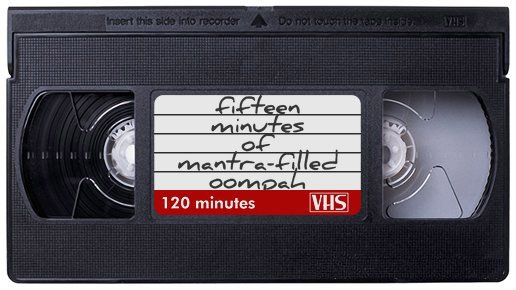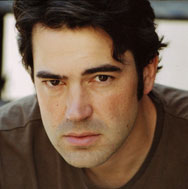
The first notable thing about this four-parter, set during the English Civil War, is that it isn't an adaptation of a decorated novel, but an original script by Peter Flannery, author of
Our Friends in the North. The second notable thing is that Sky+ is laughably squeamish about the title, which it presents as
The Devil's Wh**e. Rather than providing a comprehensive blow-by-blow account of the causes and events of the war, Flannery examines the conflict and its consequences through the experiences of fictional noblewoman Angelica Fanshawe (Andrea Riseborough). It's a complex piece of work, and, as you'd expect, there's plenty for the screenwriters among the audience to chew over.
Structurally, the opening episode depicts the course of her marriage to cousin and childhood sweetheart Harry, starting on her wedding day and ending with Harry's execution by the King's firing squad, for surrending their family home to the parliamentarians.
The episode is also bookended by two scenes in which Angelica calls - unsuccessfully - for God to intervene and prove his existence. This correlates thematically with the wider political story, in which the divine right of kings is being questioned.
In an early flashback, Angelica's Catholic mother flees to a convent in France, after experiencing a vision of the Virgin Mary. When the distraught young Angelica rails against a "God that steals mothers", she in turn has a vision - of the devil. Later, at the climax of the episode, she calls on God to save her husband's life. When he doesn't, the devil appears to her again - indicating that the provocatively independent-minded Angelica may take 'the left-hand path' in her future.
Angelica and Harry's marriage reflects the deteriorating relationship between King Charles I (an eerily bloodless Peter Capaldi) and his people. While the king is keen to silence his critics - provocatively storming the parliamentary chamber to arrest Puritan agitators - the insecure Harry Fanshawe, with his mind poisoned by paranoia and the mockery of the young blades at court, reacts violently to his wife's 'wild mind' and sensual enthusiasm.
However, in a highly effective bit of irony, his love for Angelica proves their undoing. When the war comes to Fanshawe, in the form of parliamentarian colonel Thomas Rainsborough (Michael Fassbender), she refuses to leave her home or husband and vows to fight to the death. To prevent her being harmed, Harry surrenders the house and incurs the full - and fatal - displeasure of the king.
While this personal story takes centre stage, the political and military beats of the conflict are dealt with economically. Indeed, the escalation to war is depicted through a 'wish I'd been there' moment; we hear about the open rebellion in London second-hand, as various courtiers run about with boxes and prepare to move the royal household to Oxford.
The nebulous nature of the conflict is epitomised by the story of Edward Sexby (John Simm), which forms the other axis of the drama. A sour, disaffected mercenary who becomes strangely captivated by Angelica during an early encounter, he changes sides during the battle of Edge Hill to join the parliamentarians. While everything that Angelica held dear is being destroyed, Sexby might be transforming from a nihilistic and opportunistic outsider into a man of principles.
Even within each side the lines aren't clear; Leveller pamphleteer John Lilburne nearly faces the rope for refusing to show due feudal respect to his 'superior', the Earl of Manchester - the parliamentarian commander-in-chief.
In a timely theme, the episode traces the radicalisation of Angelica through injustice, from a demure and loyal member of the court to a hardened exile. The episode ends with her on the brink - brutally and unjustly widowed, abandoned by God and expelled from the royal household. Flannery has created a compelling character - brought powerfully to life by Riseborough - whose progress through this turbulent period of history will be worth following.
 First off - a happy and peaceful Christmas (or whatever you choose to celebrate) to all of you.
First off - a happy and peaceful Christmas (or whatever you choose to celebrate) to all of you.



























